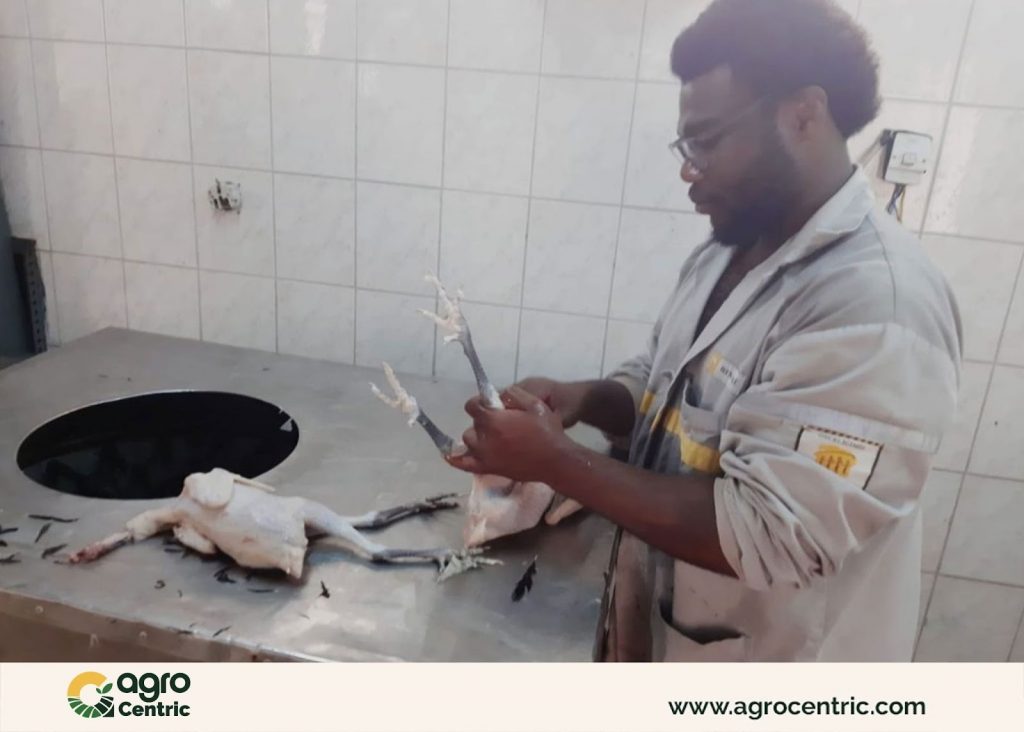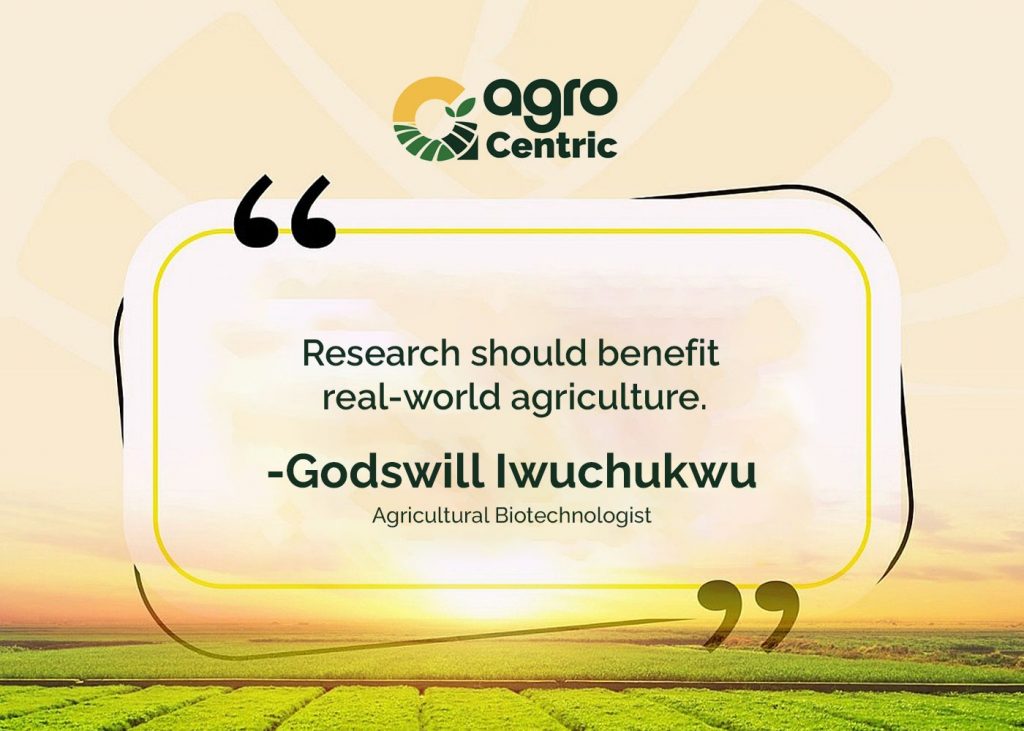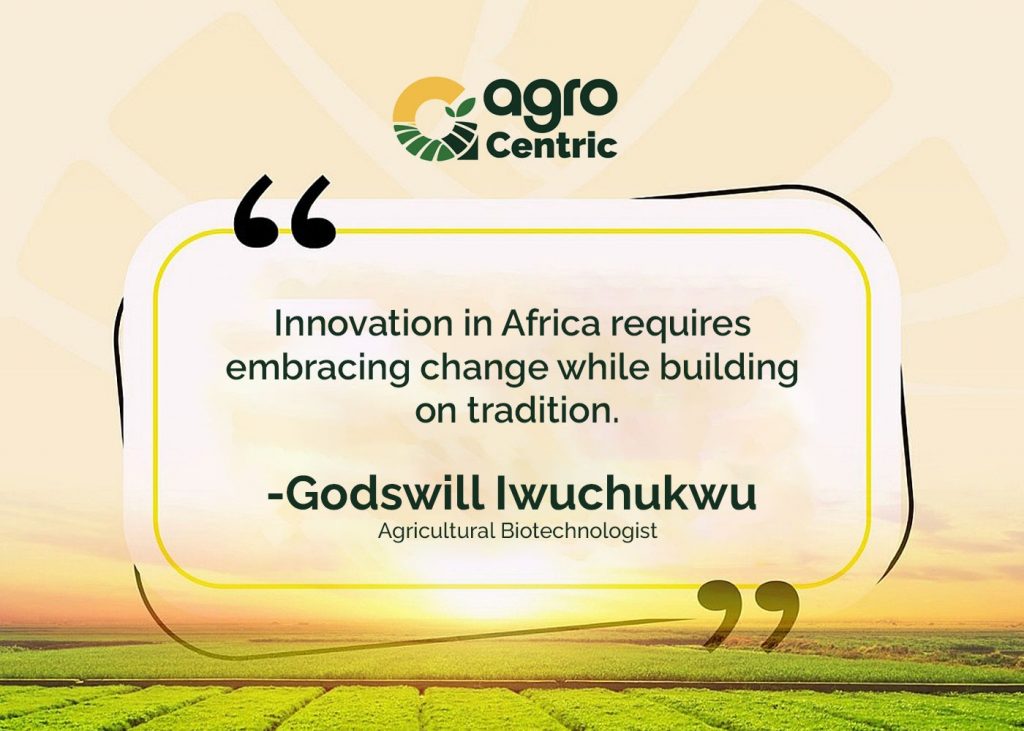
In Nigeria, innovation in agriculture faces numerous challenges, including outdated methods and limited funding. Today, we explore how a young researcher is bridging this gap, translating academic research into practical solutions for sustainable farming.
Godswill Iwuchukwu, a Nigerian Agricultural Biotechnologist based in Turkey, has worked extensively on sustainable Livestock feeding and local chicken incubation, publishing his research in top journals while ensuring practical impact for farmers. From researching myogenic genes in Turkey to optimising animal nutrition in Nigeria, his work combines scientific rigour with actionable strategies.
In this discussion with AgroCentric, he discusses the challenges and opportunities in Nigerian agriculture, the role of science in influencing real-world practices, and why mentorship and resilience are crucial for young scientists aiming to make an impact while advocating for the adoption of innovation across Africa.
Let’s get to know you. Who is Godswill Iwuchukwu, and what path has brought you here?
My name is Godswill Iwuchukwu, and I am an Agricultural Biotechnologist. I studied Agricultural Biochemistry and Nutrition in the Animal Science Department at the University of Ibadan, where I earned my Bachelor’s degree.
Then I moved to Turkey, where I studied Agricultural Biotechnology at Ondokuz Mayıs University. I’m currently pursuing my PhD in the same field at Eskişehir Osmangazı University.
Was agriculture always the dream, or did it become one along the way?
My motivation for studying agriculture began at a young age. Back then, our parents usually made us watch the news instead of cartoons or movies. One evening, as usual, my dad called me while I was eating. I was in junior secondary school and tried to run to my room with my food, but he said, “Come back here and watch the news. You don’t know what’s happening around the world.”
I was angry and rebellious, but that’s when I saw the news about Sudan; they were in the early phase of the war. I saw hungry children. I was quite plump when I was younger; my parents fed me well. If there’s anything I’m proud of them for, it’s that they never wanted me to go hungry. Even though they didn’t provide luxuries, they ensured I always had food so that I wouldn’t get sick.
While eating, I asked myself: Why should I be enjoying too much food when children and the elderly in Sudan are suffering from war, famine, and hunger? This realisation deeply affected me as a child, shaping my perspective on life and making me appreciate my parents’ efforts. I vowed to always provide food, especially to those in need, and even now, with Sudan’s continued hunger and crisis, that passion remains.
When I applied to university, I told my mom I wanted to pursue a career in farming. But, like many Nigerian parents, mine encouraged conventional careers such as medicine or law. Despite pressure to choose medicine, I was admitted to study agriculture, and it felt like my true calling. This experience taught me the importance of listening to my convictions and recognising that sometimes life guides us to our purpose. Since then, every decision I’ve made aligns with those beliefs.
That’s a powerful origin story. What challenges did you face early in your journey, and how did you overcome them?
Convincing my parents was the first challenge, but persistence helped. Once they saw I was serious, they respected my choice. The next challenge was the education system itself. In Nigeria, university life can be unpredictable, with strikes, poor facilities, unstable electricity, and overcrowded classes all making learning and research difficult. To cope, I used holidays to do extra research, volunteer, or take internships related to my field, even unpaid ones. Those experiences exposed me to practical knowledge that the classroom couldn’t offer.
Finances were another challenge. My parents provided the basics, but not luxuries. When my first phone was stolen during my first year, I had to sacrifice my food money to buy another. Experiences like that taught me discipline and helped me develop problem-solving skills. There’s also the issue of limited funding for research. Many students have brilliant ideas, but they often lack the necessary support to bring them to fruition. Government and private partnerships could make a huge difference. Nigerian students are hardworking and intelligent; they just need opportunities to prove it.
Can you share one research project you’ve led that has had a notable impact on agricultural development?
As you said, I make sure all my research is significant. One problem in the Nigerian university system is that research is often conducted, but then sits in the library or is discarded. I’m fortunate to have published mine. This research was conducted during my undergraduate studies in Nigeria, where we investigated the combined effect of using Megathyrus maximus (also known as Panicum maximum or guinea grass) and Gliricidia as forage sources in ruminant feeding. The goal was to explore sustainable alternatives to address the ongoing crisis involving farmers and Fulani herders. The idea was that these endemic forages could be grown on ranches at a low cost, thereby reducing dependence on imported feeds or grass seeds and minimising the need for expensive interventions. The results showed that a mixture of 75% grass and 25% legume was effective, with minimal environmental impact on methane and carbon dioxide emissions. This remains the most significant research I’ve done for Nigeria.
In Turkey, I researched myogenic genes, which regulate muscle development in farm animals, with a focus on one of the two local chicken breeds. We studied the effect of incubating mature eggs under different light colours to see if this could increase gene expression, potentially improving muscle growth and slaughter weight. Local chickens grow slowly compared to broilers, so the research aimed to enhance meat production sustainably using environmental modulation rather than intensive inputs.
Overall, my work consistently focuses on sustainable agriculture, optimising animal production with local resources while minimising environmental impact.

Looking at the Nigerian landscape and Africa in general, how do you see these innovations being applied? Have you pitched them to Nigerian companies or agri-businesses, and what’s the reception been like, given how we sometimes resist change?
Even now, there’s still debate over whether ranches should be established for Fulani herders everywhere across Nigeria. It’s a long process. Africa needs to evolve alongside the rest of the world; its traditions must be improved with new methods. Biotechnology is constantly evolving, and even if you know everything today, tomorrow, there will be something new. We must adopt the most relevant innovations, like Western countries do.
Most of my research is published, so it’s accessible for others to build upon. For example, my recent work in Turkey was published in a well-known Q1 journal, and other papers are in open-access journals, such as the Black Journal of Agriculture. I’ve also written review articles that summarise previous work and explore new directions. These publications provide a foundation for future innovations. With Nigeria’s recent establishment of a livestock ministry, there’s potential for a greater focus on breeding and improving livestock, including not only poultry but also cattle, pigs, goats, and sheep.

Can this research benefit farmers practically?
Yes. In my master’s work on poultry, we studied optimal lighting for incubating chicken eggs. The red light shortened the hatching window from 72 to 42 hours, thereby improving efficiency. We also examined how light affects myogenic gene expression and growth. For example, green light encouraged myogenic gene expression in broilers over a short period, while red light was more effective for slower-growing local chickens. These insights help farmers optimise production based on the breed.
Beyond the lab, do you have plans to turn these ideas into real-world operations?
Absolutely. In Nigeria, I also explored rabbitry, which I found to be a profitable venture. In 2020, during my master’s studies at UI, I raised rabbits but was unable to meet the demand because people wanted rabbit meat. It’s one of the healthiest meats, pure white meat with low cholesterol, and a good source of protein, and income, particularly for students.
You’ve received several awards and scholarships. How have these opportunities influenced your research trajectory?
I’ve been fortunate to receive several scholarships, and I’m currently still on one. These opportunities are crucial because they alleviate financial pressure, allowing students to focus on their studies without worrying about costs. For me, it reinforces the mantra: “To whom much is given, much is expected.” I’ve always tried to make the most of every opportunity.
Scholarships have made studying less stressful and introduced me to important mentors. For example, I met my MSc supervisor through a scholarship, and his guidance had a significant influence on my research. During my undergraduate studies, my supervisor encouraged me to publish my work. It is also important to know that scholarships are not just about funding; they’re also about the people you meet and the networks you create. One scholarship also allowed me to travel to Poland for research collaboration, experiences I wouldn’t have had only in Nigeria.
I also actively encourage other students. During my 500-level, I served as Education Minister of the student association in my department, focusing on academics and building relationships between students and lecturers. One student told me he was inspired to match my record; he later became a McGill scholar in Canada. I’ve helped students with essay reviews, honing their writing skills, co-authoring review papers, and navigating scholarship applications. These experiences not only help them succeed academically but also broaden their understanding of research and prepare them for advanced studies.

What advice would you give to young scientists and students aspiring to follow a similar path?
First, students need to recognise that the university cannot give everything. There’s a misconception that school is a scam; education is not. Formal or informal, education is about learning and finding your purpose. You must decide early on how to shape your future and utilise the available resources.
Students should develop resilience and determination. I’ve seen peers overcome immense challenges and succeed because they were focused and disciplined. Grades matter, but more important are the qualities behind them: diligence, discipline, resilience, and smart work. Grades should reflect these traits, not replace them.
Balance is key. Engage in academics, politics, social activities, and sports. Leadership roles, such as class representative or department positions, teach essential skills in human relations and decision-making. Internships, volunteering, and extracurricular experiences are equally important; they expand your network, expose you to new environments, and give you practical skills.
Students should also actively seek scholarships and opportunities; don’t wait for someone to tell you. Utilise online resources, WhatsApp or Telegram groups, and mentorship programs to discover available applications. Applying for scholarships is not just a way to leave your country; it’s an opportunity to gain knowledge, contribute to the community, and prepare for the future responsibly.
Ultimately, education is a tool to prepare for life. The university is a microcosm of the world, providing a safe space for you to develop skills, test yourself, and discover your purpose. Take full advantage of it, work hard, remain disciplined, and always look for ways to give back to your community.
Thank you, Godswill, for such an insightful conversation. To explore his research, insights, and ongoing projects, connect with him and learn more about his research on LinkedIn.
You can also access Godswill’s research works here: